BLOG ARTICLE
Email Marketing For Podcasts - Tips, Platforms, & Best Practices
Last updated: 7/27/2024
Last updated: 7/27/2024
Becoming a familiar host in your podcast's niche entails more than just picking up a microphone and recording. You need to promote your podcast strategically and one effective and virtually free way do that is through email marketing for podcasts.
In this guide, we will cover the essential elements needed to streamline your podcast email marketing and how you can grow your show with it.
Specifically, you're going to learn;
- The best email marketing platform for podcasters
- How to develop a captivating email marketing strategy for podcasts
- How to create your podcast landing page optimized for capturing listeners' emails
Also, you'll be inspired on how to structure your podcast newsletter automatically with Podsqueeze AI - for free.
Let's get started.
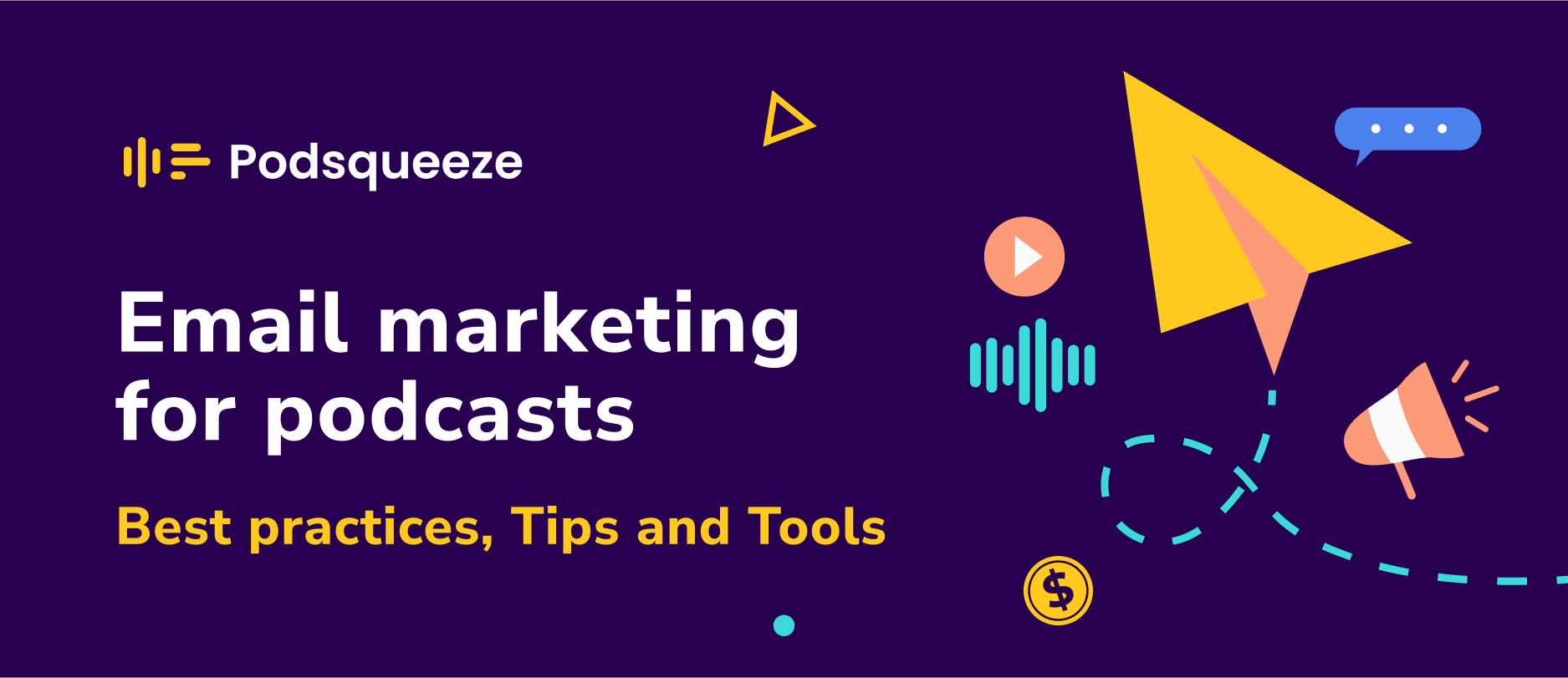
What's email marketing for podcasts?
Email marketing for podcasts means promoting, engaging, and retaining listeners to your podcast show using email campaigns. You can use email to promote new episodes, engage with your audience outside of podcast platforms, and also stay connected with your audience.
Overall, email marketing for podcasts is an evergreen marketing strategy that keeps you engaged with your audience and makes them interested in your podcast over the long term.
Benefits of podcast email marketing
Have an audience of your own
Email marketing ensures that you can build an audience of your own without worrying about any limitations from third-party platforms. For example, Spotify, Apple, Castos, and other podcast platforms have their terms and conditions by which everyone must abide. But with your own email audience? You set the rules.
Moreover, with an email audience, you're not limited in reach as you often are on social media platforms like Instagram or facebook, where your posts typically only reach 9% and 5%, respectively, of your followers by default.
Easily promote new episodes
Email marketing gives you the platform to easily promote your new episode which can boost the reach of your podcast on certain platforms. For example, the YouTube algorithm tends to prioritize videos that attract viewers right from the moment they're uploaded, boosting their visibility and reach.
Engage and retain audiences outside of podcast platforms
Email marketing lets you engage with your audiences outside of podcast platforms. This can be in different forms - sharing updates, behind-the-scenes insights, or sharing anything that makes the audience connect more to you - fostering a cordial relationship that can make them engaged and interested in your podcast in the long run.
Monetization option
A less explored monetization option for podcasters is email marketing. For example, this newsletter with 4.5 million subscribers was sold for a striking amount of $75 million. Yes, your podcast email subscribers might not be up to that but if you can gather a sizable number of readers, you can also earn from your email list, in particular through paid sponsorships.
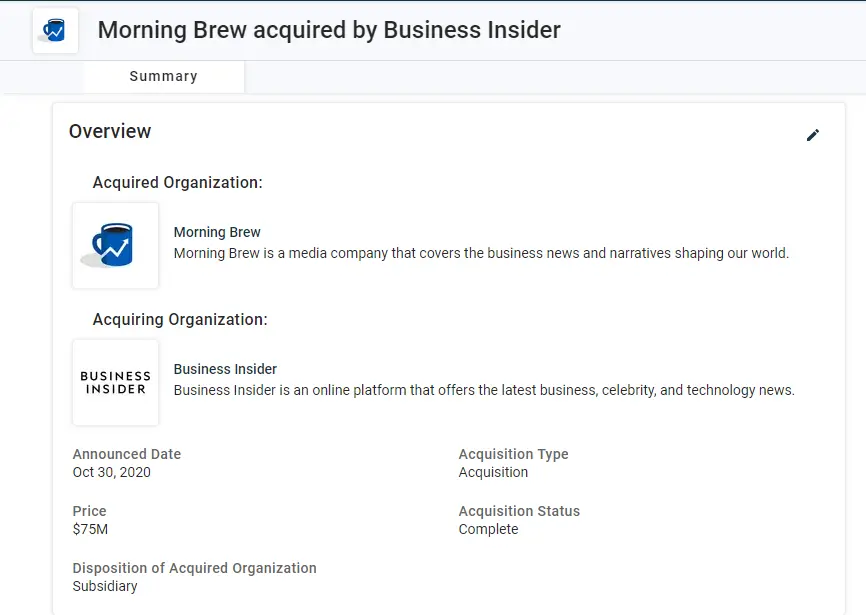
Creating a podcast email marketing strategy: 4 steps
We've compiled this four-step approach for you to achieve a compact email marketing strategy for your podcast and get more subscribers.
Step 1: Start with a goal in mind
The basics of every podcast marketing strategy is for it to achieve a definite goal. Start your campaign with a goal in mind. For example, envision your podcast in the next 6 to 12 months, how many email subscribers do you have? What's your newsletter open rate? How many visitors do you have on your podcast landing page? Etc.
Start by figuring out what goals you want to achieve with your podcast email. It could be a promotion outlet for promoting;
- Live events
- Webinars
- Meetups, or
- Other special events related to your podcast.
Or, it could be to encourage;
- Feedback
- Questions, and interactions from your audiences or perhaps,
- To use your email list as another monetization option.
In essence, there's no fixed rule on what your goal(s) can be. In fact, you can even have multiple goals - it's just important to have a definite one in mind as it will guide you in planning the next steps of your strategy.
Step 2: Create a podcast landing page for capturing emails
After starting with a goal, it's time to begin the practical steps toward your podcast email marketing - creating a podcast landing page. There are many options for creating a landing page but first, your landing page should be podcast-focused.
By that, we mean these features should be available on your page;
- Episode highlights or trailers
- Social proof - Testimonials or reviews
- Links to podcast directories
- Opt-in or subscribe form
- Clear subscribe button or CTA
A landing page that checks all these boxes will be an ideal place for capturing listeners' emails and a gateway for attracting and converting visitors into subscribers.
Most email marketing platforms have options for creating a landing page but they have one disadvantage and that is; that they're not structured for podcasting.
For a more detailed, podcast-focused landing page, our free podcast landing page generator can automatically generate landing pages for your podcast and episodes all with a single click.
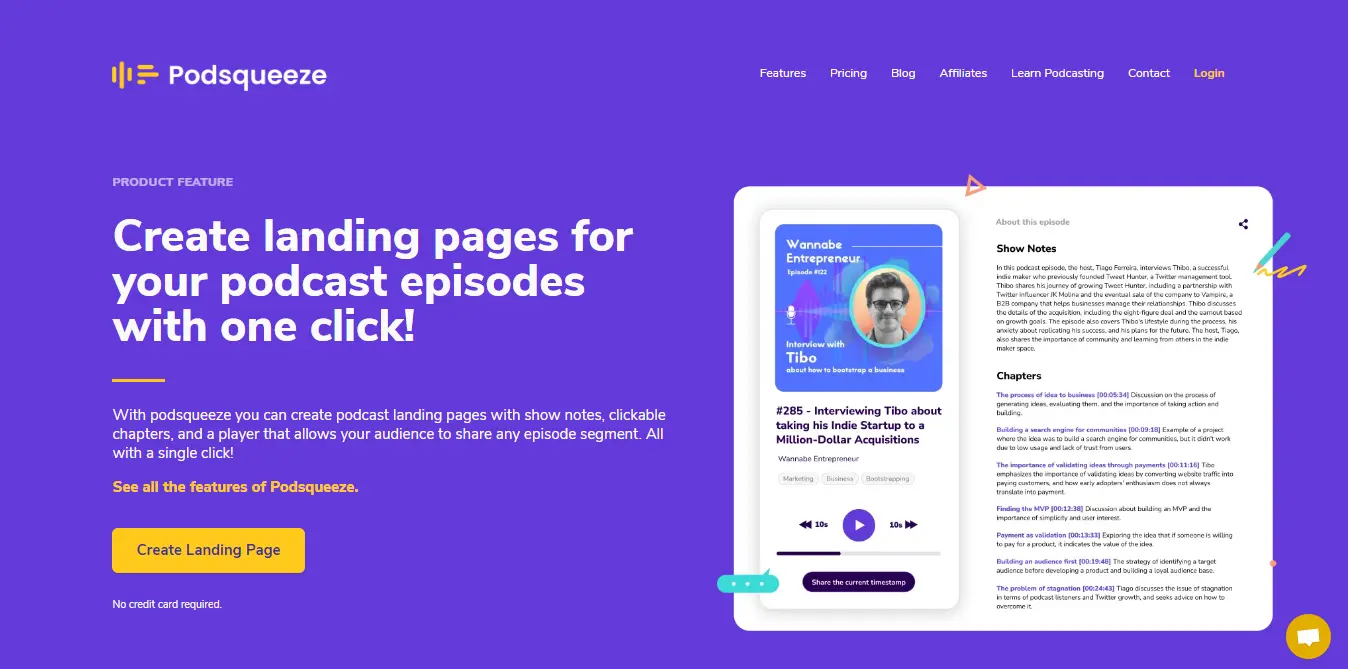
With features that include links to podcast directories, clear CTAs, and more, you can get landing pages that attract, engage, and also convert your visitors to subscribers.
Step 3: Choose an email marketing platform
An email marketing platform is where you can create, send, and manage email campaigns to the subscribers you've captured from your podcast landing page. There is a whole range of choices to pick from but before that, here are essential features an email marketing platform should have;
- Email templates
- RSS-to-email feature
- Audience segmentation
- Automation for setting up email sequence, autoresponder, etc
- Monetization option
With these features in mind, popular email marketing platform options to choose from are;
Mailchimp
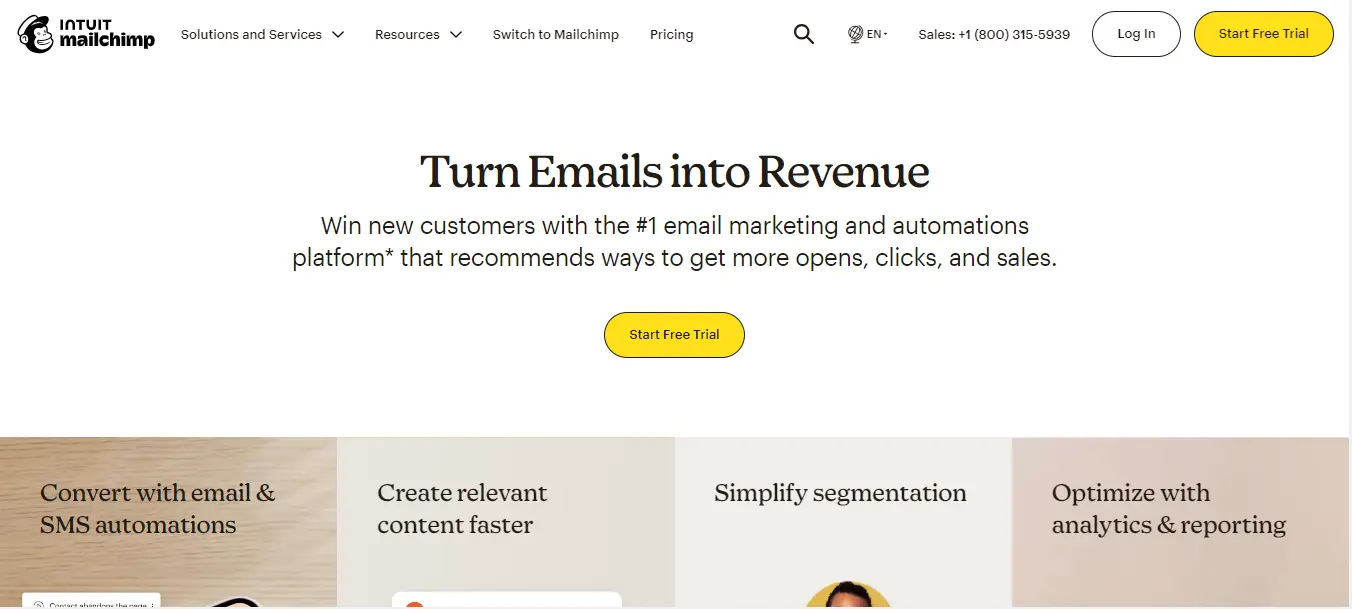
Beehiiv
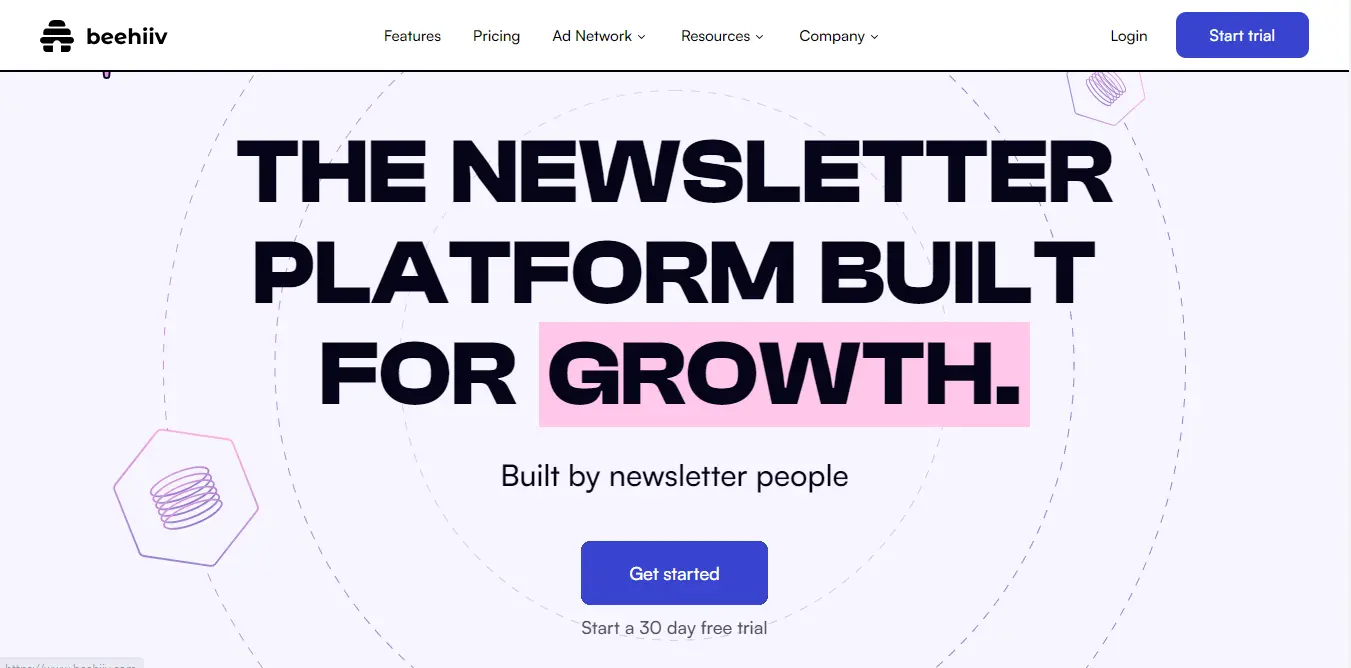
ConvertKit
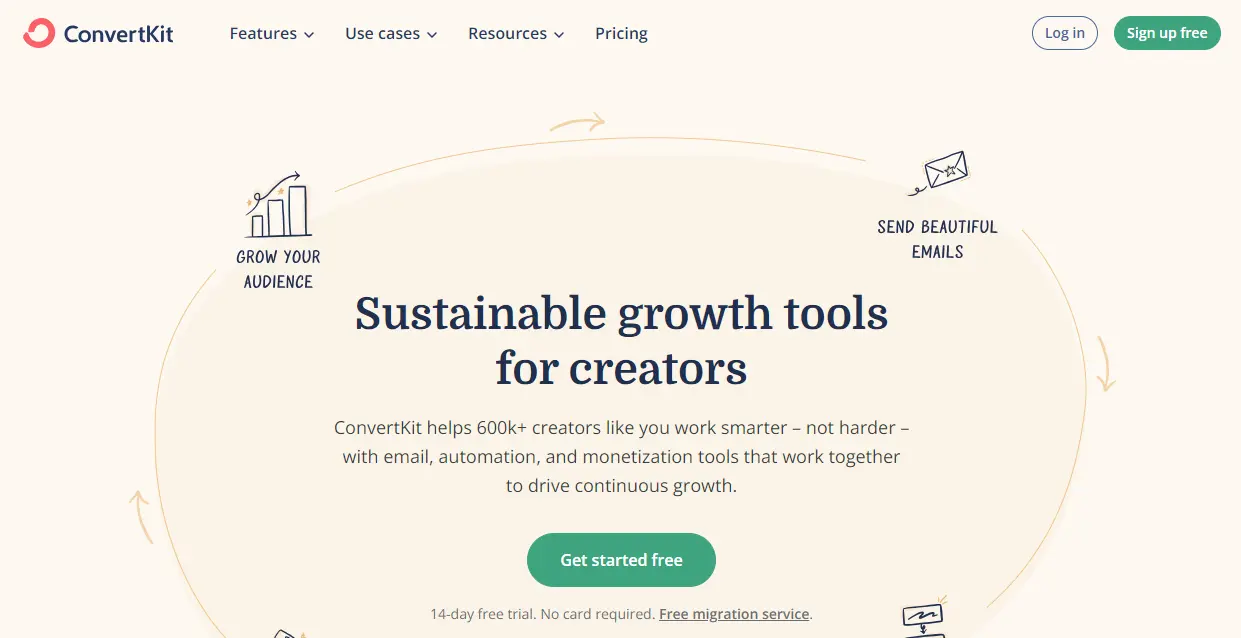
Aweber
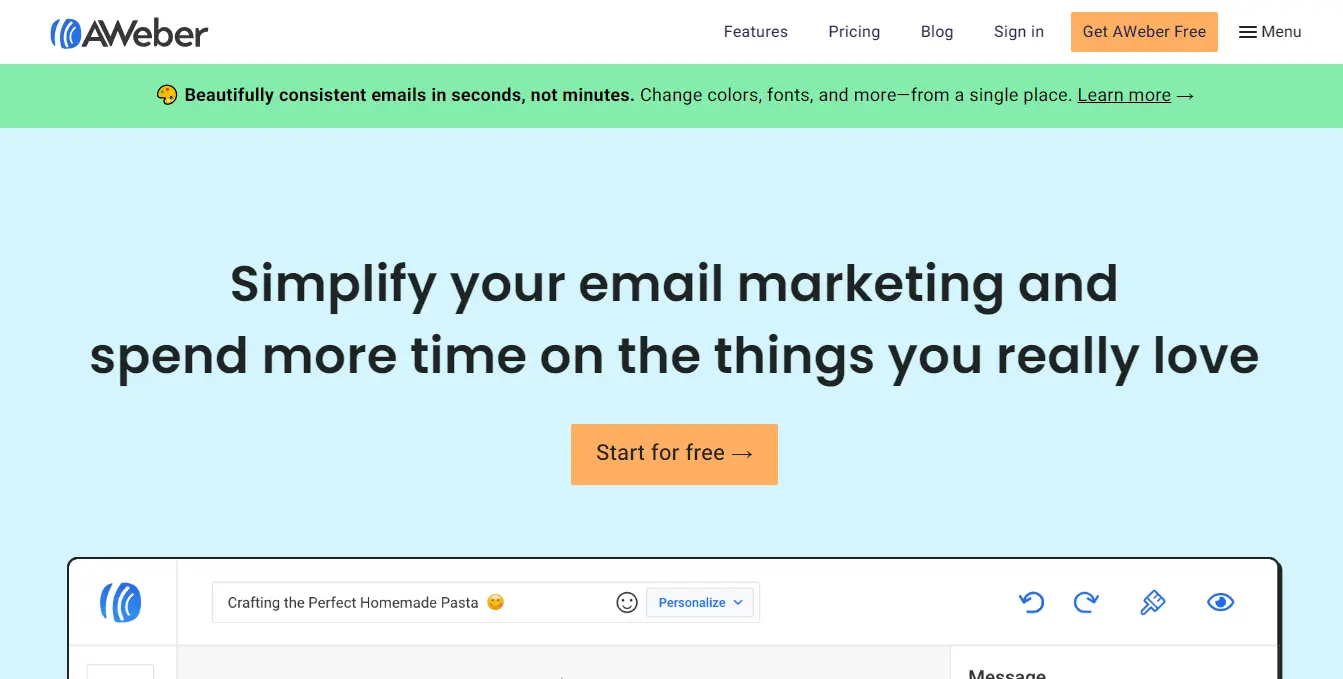
MailerLite
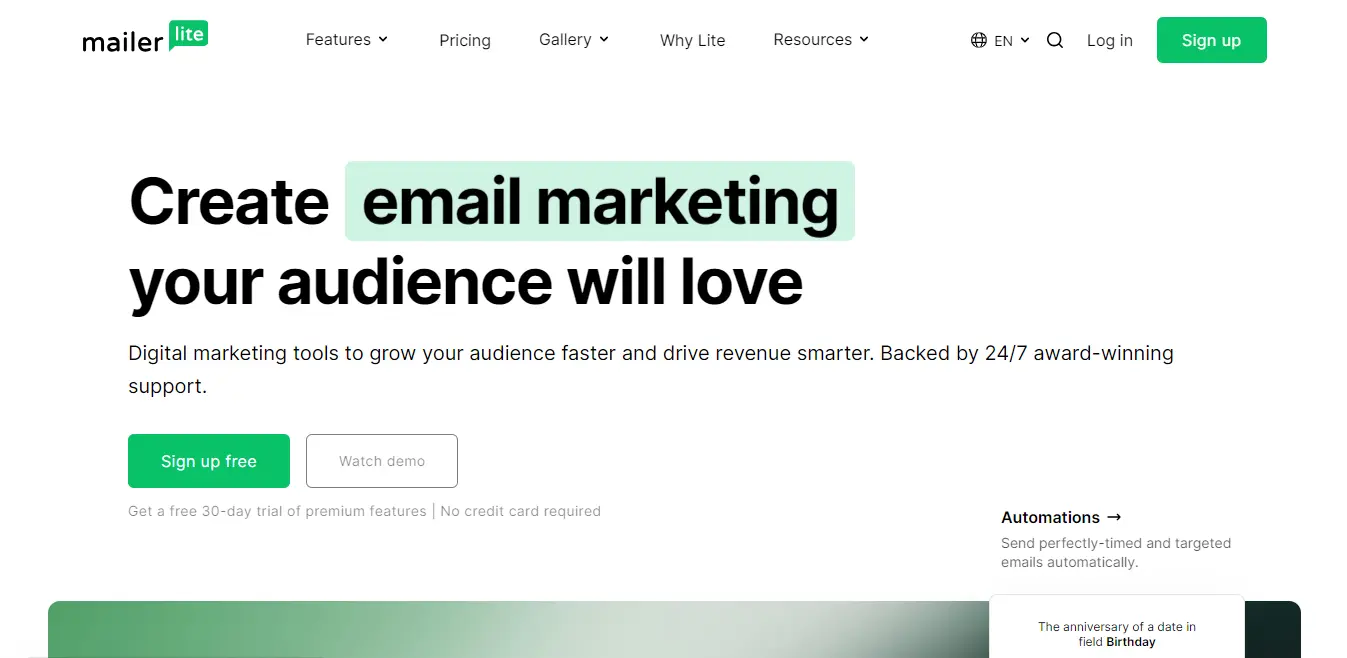
Step 4: Begin with a consistent newsletter
A podcast newsletter is simply a regularly distributed email containing news, updates, or information that is geared towards achieving the email goal you set (you can go back to step one if you don't have a goal yet).
It is where you begin communicating your goal to your subscribers and nurturing your relationship with them over time. Sending a newsletter is as easy as sharing a social media post but the process might be different depending on the email marketing platform you chose.
The question now is; how to structure your podcast newsletter?
Crafting an email about your podcast episode can be a little tricky if writing is not your strong suit or you're juggling recording, editing, and promoting your show. If you're on any of these sides, we've got you covered. With Podsqueeze AI, you can automatically generate an episode newsletter that can prompt subscribers to listen to your latest episode.
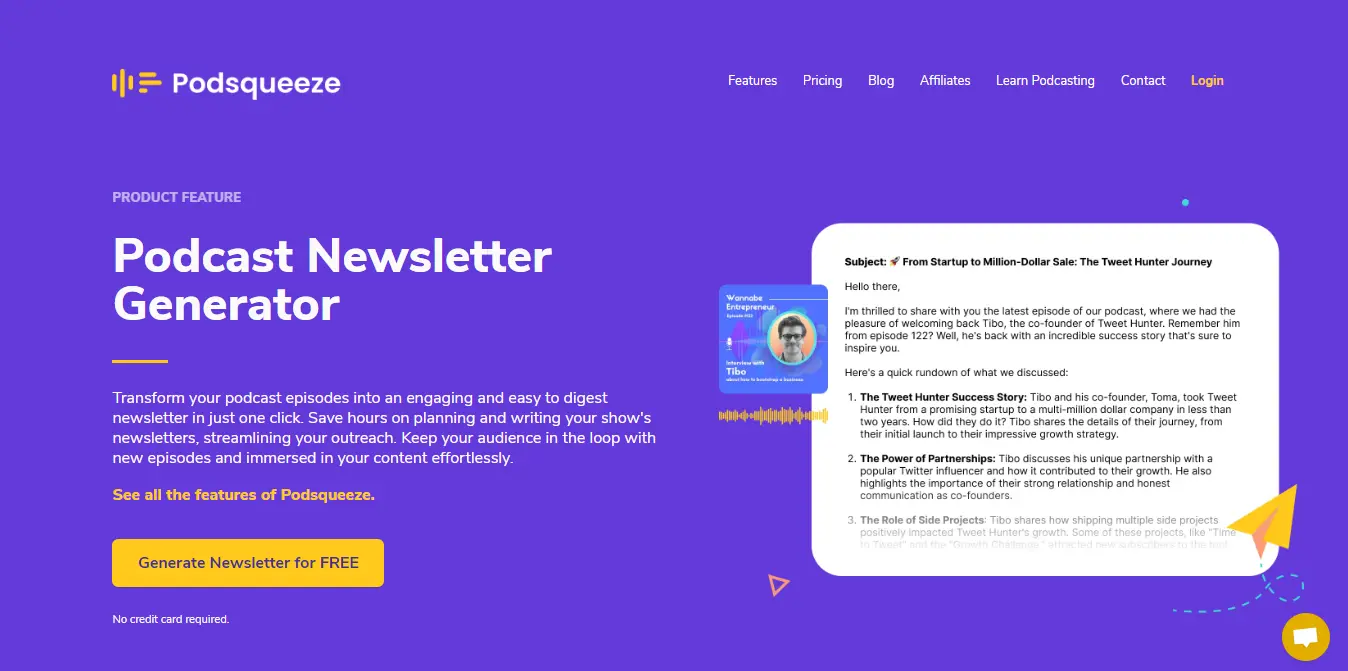
Here is an example of a podcast newsletter automatically generated by Podsqueeze from a podcast audio:
Subject: 🚀 From Startup to Million-Dollar Sale: The Tweet Hunter Journey
Hello [name],
I'm thrilled to share with you the latest episode of our podcast, where we had the pleasure of welcoming back Tibo, the co-founder of Tweet Hunter. Remember him from episode #122? Well, he's back with an incredible success story that's sure to inspire you.
Here's a quick rundown of what we discussed:
The Tweet Hunter Success Story: Tibo and his co-founder, Toma, took Tweet Hunter from a promising startup to a multi-million dollar company in less than two years. How did they do it? Tibo shares the details of their journey, from their initial launch to their impressive growth strategy.
The Power of Partnerships: Tibo discusses their unique partnership with a popular Twitter influencer and how it contributed to their growth. He also highlights the importance of their strong relationship and honest communication as co-founders.
The Role of Side Projects: Tibo shares how shipping multiple side projects positively impacted Tweet Hunter's growth. Some of these projects, like "Time to Tweet" and the "Growth Challenge," attracted new subscribers to the tool.
The Financial Journey: From their initial launch to the point of selling their company, Tibo provides a detailed account of their financial journey, including their profitability and how they managed their expenses.
The Acquisition: Tibo shares the details of the acquisition deal and his mixed emotions about selling the company. He also discusses the process of selling a company and how the valuation is determined.
This episode is a treasure trove of insights for anyone interested in the indie company scene. I encourage you to listen to the full episode for a deep dive into these topics and more.
As always, a big thank you to our sponsor, Hivoe, for their support. And of course, thank you for being a part of our podcast community. Your support means the world to us.
Until next time, keep dreaming and keep doing.
Best, [Your Name]
Besides episode highlights, there are other ways to engage with your audience through the newsletter; you can
- Share exclusive content
- Update your subscribers with previews or announcements
- Make promotional offers, etc
10x your email subscribers through social media
As far as promoting your podcast episode through email marketing goes, you also need to promote your newsletter to get more eyes on your emails. Leveraging social media has proven to be one of the best ways to grow email subscribers for your podcast and here are a few essential practices to follow;
-
Create and promote a captivating lead magnet: Start by offering valuable incentives like exclusive content or downloadable resources (ebooks, guides, etc) in exchange for subscribing to you.
-
Host giveaways and contests: Especially on Instagram (it can also work on other social channels), host giveaways and contests to create buzz around your show.
-
You can also share testimonials and audience reviews on social media to inspire audiences who are just getting in touch with your podcast.
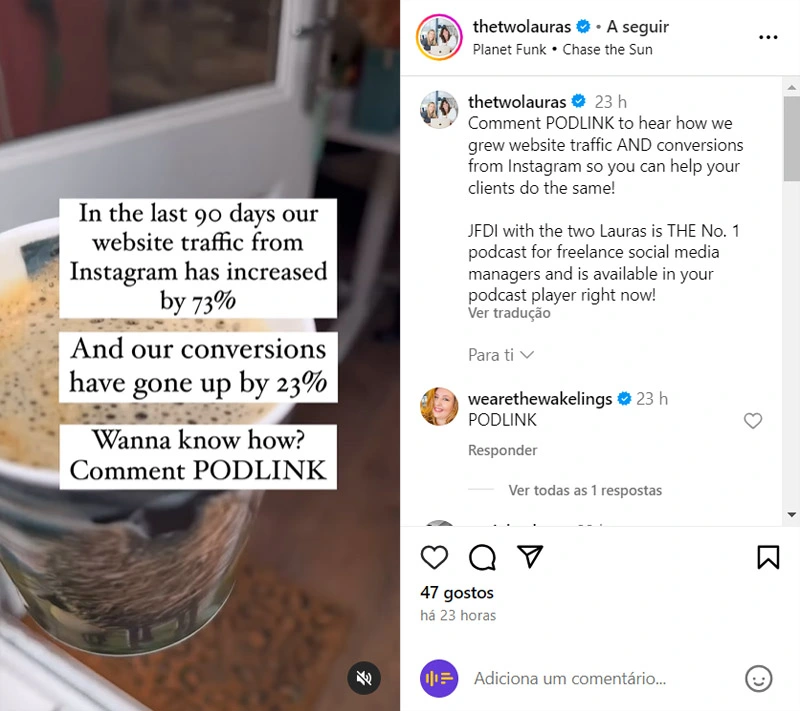
Wrapping up
And there you have it, a complete guide on email marketing for podcasts. We have covered how you can start an email marketing campaign for your podcast and the steps needed to bring your podcast email marketing to life.
FAQs on email marketing for podcast
-
What's the difference between email marketing for podcasts and podcast newsletters?
Email marketing for podcasts entails the whole process of attracting visitors, educating them, engaging them, converting them to subscribers, and retaining the audiences over a long time through email.
A podcast newsletter involves the email content sent to your subscribers regularly aimed at achieving your podcast goal. A podcast newsletter is part of email marketing for podcasts.
-
Why should I use email marketing for my podcast?
Using email marketing for your podcast will allow you to communicate directly with your audience, promote new episodes, share exclusive content, and build a loyal community around your podcast. It's an evergreen approach to building a lasting podcast audience.
-
How do I grow my email list for my podcast?
You can grow your email list by creating valuable content and offering valuable incentives like exclusive content, lead magnets, giveaways, contests, and promotions on your podcast episodes, website, social media platforms, and other marketing channels of your choice.
To learn more about growing your podcast, check out this guide.
-
Which email marketing platform should I use for my podcast?
There are many popular email marketing platforms for podcasts to choose from. Some of them include Mailchimp, Beehiiv, ConvertKit, AWeber, and others. Choose a platform that offers features tailored to podcasters, such as RSS-to-email functionality, integration with podcast hosting platforms, and customizable templates.
Repurpose your podcast content with AI